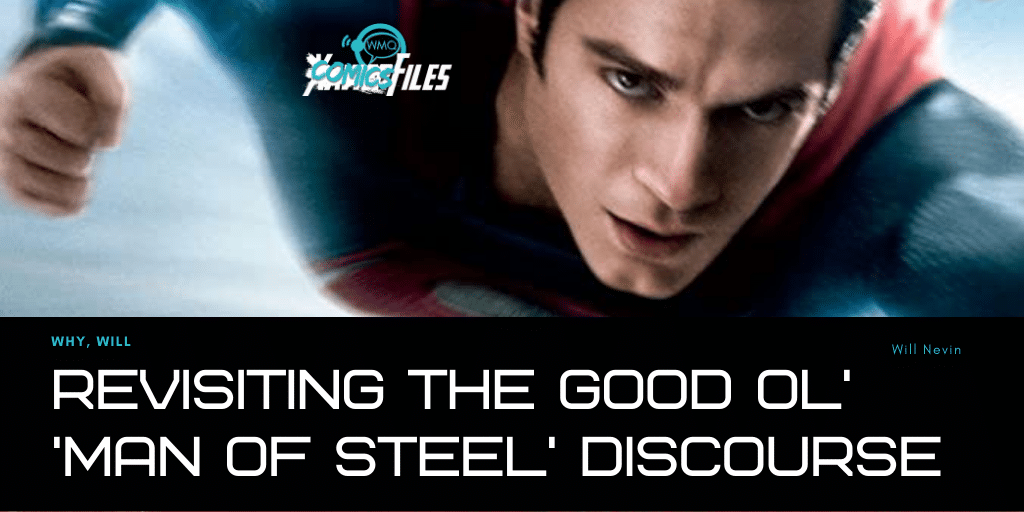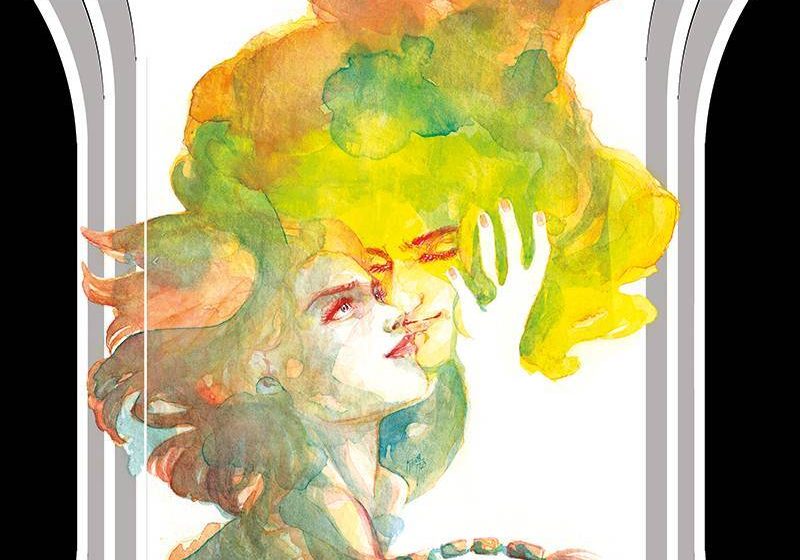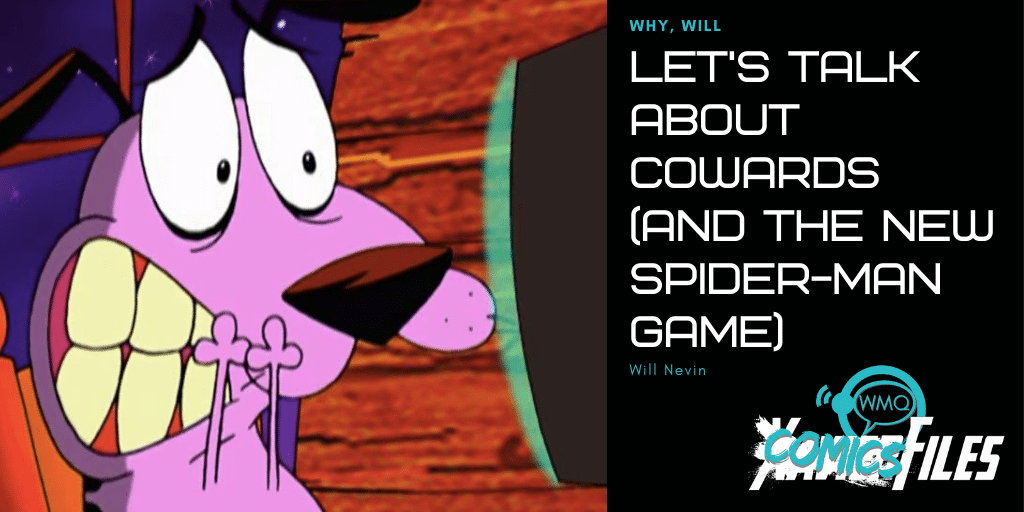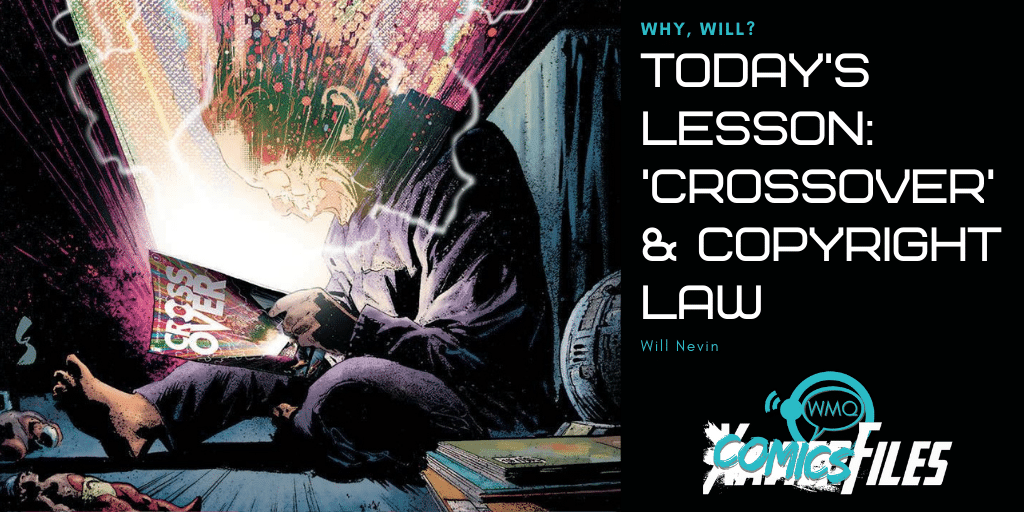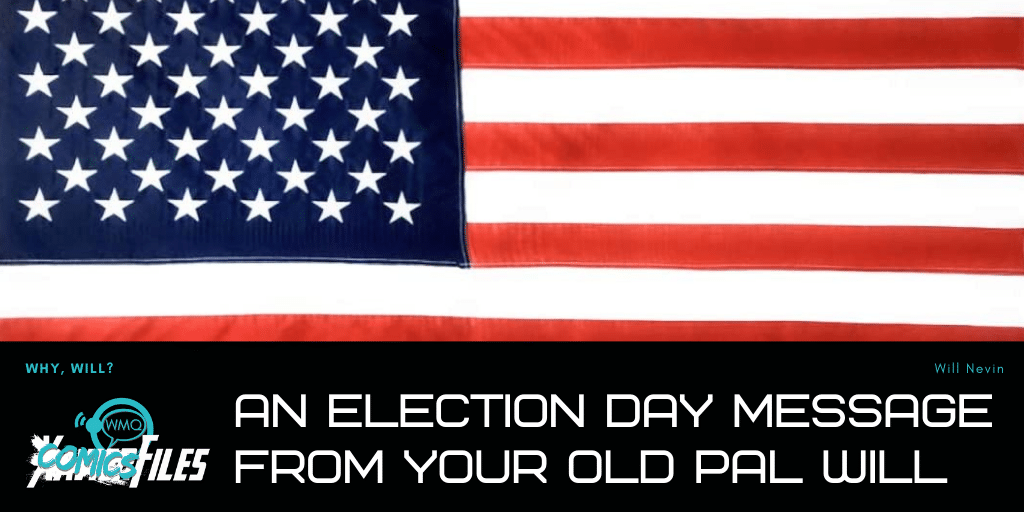Remember 2013? When Lance Armstrong copped to being a drug cheat and “Star Trek Into Darkness” beat “The Final Frontier” and “Faith of the Heart” as the worst Star Trek thing ever made? And you could go outside? Those were the days.
The Splash

The hallmark of a Zack Snyder movie — outside of his terrible taste in tone and aesthetics — is that it truly never goes away. His “fans” (certainly a generous name for the band of buttholes who flock to his banner) pushed and pushed and pushed until Warner Bros. decided to exploit them and the fabled “Snyder Cut” for HBO Max subs. And we’re still talking about the bad decisions made in all of his movies — “Batman v Superman” and “Man of Steel” included — years after they were made.
It’s the latter that prompts me to bring back the discourse once more after writer David S. Goyer’s comments last week. Goyer, whose credits include “The Dark Knight,” “Kickboxer 2” and “Ghost Rider: Spirit of Vengeance” in addition to “MoS” and “BvS,” said he and Snyder had an ending all ready to go that *didn’t* involve Supes murdering someone, but they passed on it for … reasons.
“The idea was that Superman would – there was one of those sort of cryopods on the ship that ends up becoming the Fortress of Solitude that he’s able to put Zod back into and then throw out into space,” Goyer said. “We did talk about it, and maybe some people would’ve been happier with that.
“But it felt like a cop-out for the story that we were telling.”
I had never seen “Man of Steel” — I got through my emotionally stunted film period with “Boondock Saints,” thank you — but for you, Loyal Content Consumer, I rented that bad boy and watched it. And while I have nothing to say that crosses conventional wisdom (Pa Kent’s death was dumb, the third act is unredeemable, etc.), overall, I liked it. If anything, it made me hate “Batman v Superman” more for treading once again on the “We can’t trust Superman” theme so thoroughly explored in “MoS.”
But in no way did the film and their precious story require Zod’s death. In past comments that I’m too lazy to look up, Goyer and/or Snyder have suggested that Supes needed a reason for his stance on killing, that he needed to take a life to realize how serious that step is.
Bullshit.
I mean, when I’m writing fiction, I make it a point to include a scene in which all of my characters dump in their pants.
You know, so they can understand how bad that is.
“Man of Steel” was a solid movie. Without Snyder, Goyer and their pointlessly relentless grimdark “vision,” it could have been great.
Last time on ‘Why, Will’

Tom King apologized. Why he would do such a thing, I do not know — Jae Lee *did* work for ComicsGate-aligned interests, and that is *real* bad. Whether Lee knew how bad it was is immaterial to that calculation. But the primary reason I was convinced to go so hard in the paint for King last week even while I’m ready to criticize him on any number of others things (like his past messiness, his love affair with the nine-panel grid that writer Ryan O’Sullivan blew up in “Fearscape” and the interminably dull and misguided back half of his “Batman” run) is that these monsters are never genuine with their outrage.
And I’m not talking specifically about Lee here; rather, it was everyone else going after King. You know, the types with dog avis on Twitter who use “SJW” and “soy boy” unironically. The types who tried to get a hashtag going that suggested King hates Asian people. It reminded me of the moment when Samantha Bee lost every bit of self-respect and independence and apologized for calling Ivanka Trump a “feckless cunt” as if that was some cardinal sin of anti-Americanness. The horde that demanded Bee’s prostration didn’t care who Bee was or what she said or even about Ivanka — it was an opportunity for performative outrage and an invitation for a self-inflicted wound that Bee so graciously accepted.
The ComicsGate horde doesn’t care about Lee any more than they care about anyone else’s inherent human dignity. It was a chance to strike, and King’s apology — based in what was probably his desire to move on from the whole episode — did nothing to curb their thirst for grievance and online misery.
Don’t negotiate with terrorists. Don’t flinch in the face of bullies. Don’t apologize when you were right.
The Murphy Report

A community service: Once you read enough Sean Gordon Murphy to understand him and why he’s bad, you can’t stop.
Harley Quinn: Black + White + Red, Chapter 6
Story: Sean Gordon Murphy and Katana Collins, Script: Katana Collins, Art: Matteo Scalera, Letterer: AndWorld Design, Publisher: DC (Digital First)
So far as I can reckon, these are the rules of the Murphyverse:
1. Never use one word when you can use nine.
2. Everyone scowls.
3. Don’t be afraid to tackle big ideas — even if you’re horrendously unqualified to do so.
4. It has to look like shit.
5. ABC: Always Be Stupid.
Inasmuch as the sixth chapter of “Harley Quinn: Black + White + Red” violates many of the above conventions — like being written and drawn by someone other than Murphy — it’s really not that bad. It’s also short at only about 10 conventional comic pages, so it leaves before it can put a bad taste in your mouth, and the coloring gimmick gives the issue a spark the other Murphy books don’t have.
But to be clear, it’s not great — the thin story (Harley reminisces about the first time she was collared by Bats) is only a prelude for the “White Knight Presents Harley Quinn” series, and it’s damn talky and dense in spots. (“If you play your cards right, you could be out [of Arkham] on bail in a week,” Batman says, forgetting how psychiatric commitment works.)
Ultimately, though, it gets the highest compliment one can give to a Murphyverse book: It’s not as bad as “White Knight.”
And Now, Your Questions
Tweet me (@willnevin) or just scream at me with some stupid thing you want answered. If you don’t ask me questions, I’ll find you and beg you for them. Don’t make me beg.
@93418: Which obscure or otherwise overlooked X-Men character do you think would shine in their own solo book? (Straightforward and non-catchy, not involving 18th century skirmishes or condiments, crazy, I know. I don’t know what’s wrong with me today.)
Not sure what I did to deserve this question, since I’m fairly certain this is designed to expose me on *Xavier* Files Dot Com as someone who hasn’t read that many X-Men books. I mean, really, this seems to be the sort of thing that would get me fired — well this and my continual shit posting in our Slack. (Sorry, bosses.) But as someone who definitely read the HoX/PoX trade and opened Dawn of X Vol. 1 at least once, I’ll take your question.

In something that comes dangerously close to infringing on Max Bemis’ gimmick in “Worst X-Man Ever,” how about William Hanover, aka “Longneck”? As the stub on the Marvel wiki I just linked to says, his mutant power is that he has a “slightly longer than normal neck.” Let’s do a miniseries in which he comes to terms with his powers of … seeing over people. His trials of being unable to find a turtleneck sweater. The heartbreak of when his team brings on someone slightly taller than him who has a real power.
If I had to settle on a real answer, I’d probably go with Moira MacTaggert since that issue of “House of X” going through all of her lives was so dope — expand that into a miniseries and call ’er a day.
@RobertSecundus: Which comic is definitely a psyop?
We have to immediately eliminate the most obvious contenders because that would be the worst cover for a psyop (unless the masterminds running the op would account for our cunning, thus making it the perfect psyop…hrm…). So first we’re going to throw out everything that Tom King, guy who presumably forreal has training in psyops, has ever written. Next, let’s consider what a psyop posing as comic would hope to achieve — as Wikipedia defines as psyop, it’s something with the aim of “convey[ing] selected information and indicators to audiences to influence their emotions, motives, and objective reasoning, and ultimately the behavior of governments, organizations, groups and individuals.” Ergo, it’s like any other form of propaganda: We manipulate emotions, shape views and hope to produce actions.
But, again, going back to the likely aim of our psyop comic, it’s probably going to be selling books — unless, of course, the Trump campaign uses Marvel to publish “The Adventures of MAGA Man” or something else equally insufferable. What comic exists only to promote consumption of comics? Hard to say there, although we certainly have comics designed to encourage the purchase of other stuff like KFC, Chex Mix and HBO Max. Generic comic events with multiple tie-ins could fall into this category of manipulation, especially when those tie-ins are essential to understanding the main storyline of the event.
But if you’re asking me what thing in comics runs closest to a psyop right now, I’m going to go with TKO’s social media. Like any other publisher, they exist to move product, and they’ll share content about their books. But TKO goes deeper and weirder in creating memes and producing stuff that’s designed to be shared. The goal with this stuff is not to truly engage you on “explain[ing] the plot of your favorite comic book using only emojis” — rather, it’s to meme-ify the brand and get that logo in front of as many eyeballs as possible. And I get it. I’m shameless about sharing and promoting my own content, too. But unlike their “What artists should we be following on Twitter?” posts of old, I’m not going to trick people into liking me or sharing my links.
I’ll beg for it like a decent human being.
(Share this link if you agree!)
@asimov_fangirl: Good morning! Is “superhero comics” a genre or more like a setting for stories? Thanks
This question makes me recall the rage given unto me by the Washington Post, but I think you’re looking for something different. At the outset, I think we have to recognize that there are comics that have nothing to do with capes ’n’ tights (this is news to WaPo, apparently), so we’re talking about a specific subset of comics and what they can do and what we expect out of them. In what is sure to be an unsatisfying answer, I’ll have to say both — that aforementioned “subset” certainly looks like a genre, but where we want to tell stories that fall outside that genre, superhero comics seem to be more like a setting or a backdrop. (As an example of the latter, I’ll point to King’s “Date Night” story with Clark, Bruce, Selina and Lois all going out together as something about superheroes but not necessarily on them *being* superheroes.)
Aren’t mealy-mouthed answers great?
@LanTweets: Do you think it’s possible for comic shops to exist/survive without the direct market?
Absolutely. But they’re going to have to double down in attracting the clientele they already have, namely people who are already ardent comic book readers. In my mind, the industry will be at its strongest when new fans are brought in via bookstores, libraries and young adult lit/other scholastic-type stuff, eventually making readers thirsty for deep cuts that necessitates a “graduation” to the comic shops that will superserve them. Think of it like the shop in your town that specializes in vinyl records: They sell a niche product to a narrow slice of fans who cannot support the music industry alone. But both the industry and the local shop survive (albeit probably not as well off as they were 25 years ago) because they serve different functions in the ecosystem.
If DC, for example, decides to basically neglect the direct market in favor of those new eyeballs in bookstores and libraries (and their recent actions suggest this isn’t crazy talk), the comic shops will stay open by offering hard-to-find mainstream books along with works from independent publishers. And merch. Because we all like merch.
There’s a way forward for everyone — if we’re willing to work hard enough to find it.
Your ‘Why, Will’ Weekly Planner

Today, Monday, Aug. 3: The Brush Lions Club is holding a “Pork Burger Fry” at the Morgan County (Colorado) Fair and hog show. Do you want to try a pork burger? Perhaps one that is fried? Do you have questions about what the “associated items” might be that the Lions Club is also selling, according to an email given to The Fort Morgan (Colorado) Times? Go to the fair and find out for me, please. Also, look forward to “Ice Cream Man” #20.
Tuesday: “Batman” #96 (makes the list ’cuz I have a solid bit that goes with it), “Dark Knights: Death Metal: Legends of the Dark Knights” #1 (makes the list because that is an actual title in the year of our dark lord two thousand and twenty). Also, look forward to “Ice Cream Man” #20.
Wednesday: “ICE CREAM MAN” #20. I guess some other books? “Alien: The Original Screenplay” #1, “Bad Mother” #1, “King of Nowhere” #4, “The Donald Who Laughs” #2 (because I am a crazy person), “Funny Creek” #1
Thursday: National IPA Day. If you don’t like IPAs, then you can go f*** yourself. Also, think about “Ice Cream Man” #20.
Friday: The film “Work It” premieres on Netflix. From Wikipedia: “When Quinn Ackerman’s admission to the college of her dreams depends on her performance at a dance competition, she forms a ragtag group of dancers to take on the best squad in school — now she just needs to learn how to dance.” Alrighty! Also, think about “Ice Cream Man” #20.
Saturday: Pokemon Go Magikarp Community Day. Yes, people (like my wife) still play Pokemon Go. Also, think about “Ice Cream Man” #20.
Sunday: The New York Yankees conclude a weekend series at Tampa’s finest indoor rodeo facility, Tropicana Field, against the Rays. (If the MLB season hasn’t been canceled.) Also, think about “Ice Cream Man” #20.
Stay safe. Stay sane.
Have a good week, y’all.
Will Nevin loves bourbon and AP style and gets paid to teach one of those things. He is on Twitter far too often.

